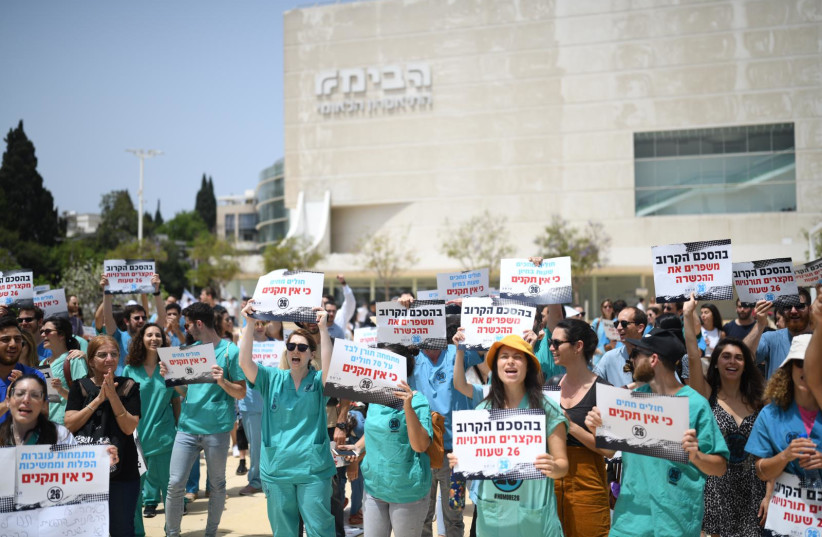Thousands of medical residents, interns and students in Israel ended their protest over the length of their shifts on Wednesday after they accepted the plan proposed by Health Minister Nitzan Horowitz to cut shifts from 26 to 18 hours over the next four years.
“Today we put an end to 26-hour shifts!” said Dr. Rey Biton, head of the Mirsham residents’ union, after meeting with Horowitz. “The Health Minister and I have now reached an agreement on all the details and I am happy to announce that our just struggle has succeeded. The residents won! And in the end also the people Israel won! Because they will receive better care and not from doctors who are too tired at the 25th hour of their shifts.”
Both the residents and Horowitz described the moment as historic.
“The revolution of shortening the shifts has started,” the minister wrote on Twitter. “This is just the opening shot for even greater changes in working conditions and service to patients in hospitals. With a large budget increase, the addition of thousands of new nursing and medical students, and the shortening of residents’ shifts, oxygen is finally flowing into our public health system. A historic move.”
Earlier on Wednesday, dozens of medical residents withdrew their letters of resignation after weeks of protests over the issue, which has been debated in Israel for several years.
According to the Health Ministry’s plan, the first phase of the outline to shorten the shift will come into effect on March 31, 2022, in 10 hospitals in the periphery.
By November 30, 2022, shifts will be shortened in the internal and emergency medicine departments in two hospitals in the center of the country.

By March 30, 2023, the outline will apply to the same departments in all hospitals nationwide. A further expansion, which will be decided upon at a later stage, will be implemented by November 30, 2023.
By 2025, all residents, interns and students in Israel will work 18-hour shifts, Horowitz said.
A previous outline proposed by the Health Ministry did not say when shifts would be shortened in hospitals in central Israel. That proposal was rejected by the residents as not detailed enough.
According to Biton, this time, the ministry provided not only a more precise timeline but also budgetary guarantees.
The outline will require some 1,250 new physicians to make up for the shorter shifts.
As part of the framework agreed upon in the past week, young medical staff will not be able to work more than six long shifts per month nor more than a total of 63 hours a week.
